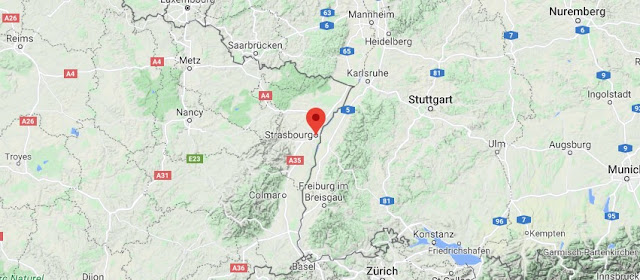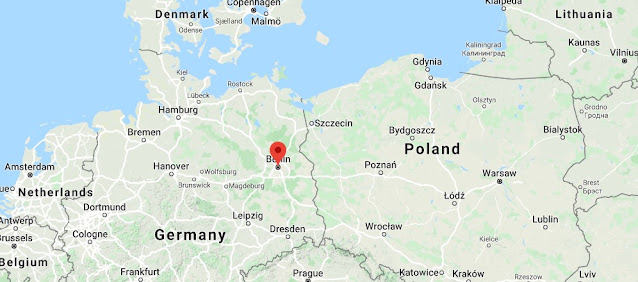..
Security scanners across Europe tied to China govt, military
By ERIKA KINETZ, AP
today
Passengers walk next to Nuctech security scanners at the Brussels Eurostar train terminal on Monday, Jan. 17, 2022. A growing number of Western security officials and policymakers fear that China could exploit Nuctech equipment to sabotage key transit points or get illicit access to government, industrial or personal data from the items that pass through its devices. Nuctech dismisses those concerns, countering that its European operations comply with local laws, including strict security checks and data privacy rules. (AP Photo/Erika Kinetz)
At some of the world’s most sensitive spots, authorities have installed security screening devices made by a single Chinese company with deep ties to China’s military and the highest levels of the ruling Communist Party.
The World Economic Forum in Davos. Europe’s largest ports. Airports from Amsterdam to Athens. NATO’s borders with Russia. All depend on equipment manufactured by Nuctech, which has quickly become the world’s leading company, by revenue, for cargo and vehicle scanners.
Nuctech has been frozen out of the U.S. for years due to national security concerns, but it has made deep inroads across Europe, installing its devices in 26 of 27 EU member states, according to public procurement, government and corporate records reviewed by The Associated Press.
The complexity of Nuctech’s ownership structure and its expanding global footprint have raised alarms on both sides of the Atlantic.
A growing number of Western security officials and policymakers fear that China could exploit Nuctech equipment to sabotage key transit points or get illicit access to government, industrial or personal data from the items that pass through its devices.
Nuctech’s critics allege the Chinese government has effectively subsidized the company so it can undercut competitors and give Beijing potential sway over critical infrastructure in the West as China seeks to establish itself as a global technology superpower.
“The data being processed by these devices is very sensitive. It’s personal data, military data, cargo data. It might be trade secrets at stake. You want to make sure it’s in right hands,” said Bart Groothuis, director of cybersecurity at the Dutch Ministry of Defense before becoming a member of the European Parliament. “You’re dependent on a foreign actor which is a geopolitical adversary and strategic rival.”
He and others say Europe doesn’t have tools in place to monitor and resist such potential encroachment. Different member states have taken opposing views on Nuctech’s security risks. No one has even been able to make a comprehensive public tally of where and how many Nuctech devices have been installed across the continent.
Nuctech dismisses those concerns, countering that Nuctech’s European operations comply with local laws, including strict security checks and data privacy rules.
“It’s our equipment, but it’s your data. Our customer decides what happens with the data,” said Robert Bos, deputy general manager of Nuctech in the Netherlands, where the company has a research and development center.
He said Nuctech is a victim of unfounded allegations that have cut its market share in Europe nearly in half since 2019.
“It’s quite frustrating to be honest,” Bos told AP. “In the 20 years we delivered this equipment we never had issues of breaches or data leaks. Till today we never had any proof of it.”
============================================================================================
Macron slammed for turning EU into ‘Africa’s hotel’
& ‘Beijing’s prey’
MEP Jordan Bardella launched a scathing attack on the French president
On Wednesday, French President Emmanuel Macron came to the European Parliament in Strasbourg to sell France’s vision for its six-month presidency of the EU.
Instead, he had to face harsh criticism from French MEPs, the most cutting of whom was Jordan Bardella from presidential candidate Marine Le Pen’s far-right National Rally party.
He accused Macron of turning Europe into “the backyard of Washington,” “the prey of Beijing,” “Erdogan’s doormat,” and “Africa’s hotel.”
“Mr. President of the Republic, how can you claim that you are reuniting Europe when you have been dividing France until the end?” Bardella asked, adding that the French presidential election in April would also decide the future of the EU.
“For France and for Europe, it is essential that your term remains a single term,” he said.
The far-right MEP didn’t stop there, claiming that the nations of Europe don’t want to be “dissolved, replaced or submerged” under his watch.
European Parliament President Roberta Metsola was forced to interject: “This is not a national debate.”
However, others also took aim at Macron. MEP Yannick Jadot, who is running as the Greens’ candidate in the presidential election, accused Macron of “climate inaccuracy,” while MEP Manon Aubry, co-leader of the parliament’s The Left group, claimed the president’s European achievements were based on “arrogance.”
Macron, who defended himself against the barrage of criticism, will likely seek re-election in April but is yet to put his name forward.
He currently leads the French polls but may face stiff competition from the far-right. The French presidential election will take place during the country’s six-month EU Council presidency.
Germany drops new hint on Nord Stream 2
The pipeline may remain unregistered if Russia invades Ukraine
America ready to sacrifice climate change for gas profits
German Chancellor Olaf Scholz rejected a chance to rule out halting the certification process of the Nord Stream 2 pipeline on Tuesday, hinting that it might be a consideration in case of Russian aggression against Ukraine.
At a press conference with NATO Secretary General Jens Stoltenberg, the German leader gave the strongest indication yet he would seriously consider stopping the project. In recent months, politicians in Washington, Brussels, and Kiev have suggested using Nord Stream 2 as a way to ensure that Russia does not consider invading Ukraine.
“Russia will have to pay a high price should there be a military intervention against Ukraine or in Ukraine,” Scholz said, responding directly to a question about whether an attack on Ukraine would mean “the political end” of the pipeline.
Nord Stream 2 is a system that directly connects Russia to Germany, making the gas transit process less reliant on third-party countries. The pipeline was completed in September but is yet to be certified.
Approval of the project, which could have come this month, was suspended in mid-November by the German Federal Network Agency over a regulatory issue regarding the operator’s lack of premises inside Germany.
The US and Ukraine have accused Nord Stream 2 of being a Russian political project rather than an economic endeavor, and Washington has claimed that it threatens Europe’s “energy security.” Now, with Russia being accused of preparing for war with Ukraine, the threat of sanctions on Nord Stream 2 are being used as a form of deterrence.
Scholz’s latest statement is a departure from previous comments made by other members of the government in Berlin. Last week, Defense Minister Christine Lambrecht stated that political differences should have no bearing on the operation of the pipeline.
“We should not drag [Nord Stream 2] into this conflict,” she said. “We need to solve this conflict, and we need to solve it in talks – that’s the opportunity that we have at the moment, and we should use it rather than draw a link to projects that have no connection to it.”
The reversal here was certainly a consequence of American pressure on Berlin. Stopping Nord Stream II would cost Germany and other EU countries a fortune in gas in the coming years. It would benefit the USA which would replace Russian gas with far more expensive American gas. The expense would be from shipping the gas across the Atlantic. This would also result in excessive and unnecessary CO2 pollution from all that shipping. Pipelines do not cause pollution or climate change. Ships, trains, and trucks cause a significant amount of the earth's anthropogenic CO2.
Climate change seems to be unimportant to the Biden regime when money is at stake.
Earlier this month, US Under Secretary of State for Political Affairs Victoria Nuland admitted that America is working alongside EU partners to stop certification of the pipeline.
“What we are doing now is working with the Germans, working with the EU to slow their consideration of the implementation of the pipeline,” she said. “This German Government has taken significant steps to do that, and they’ve also reconfirmed the agreement we had with the previous government with regard to what happens to Nord Stream 2 – namely, it’s suspended if Russia aggresses against Ukraine.”
Top German govt officials probed over suspected embezzlement
Vice chancellor, foreign minister and four others are under investigation
by the Berlin public prosecutor’s office
Green Party co-leaders, Foreign Minister Annalena Baerbock and Economy and Climate Minister Robert Habeck,
in Berlin, Germany, on December 6, 2021. © AFP / Markus Schreiber/POOL/AFP
German vice chancellor and minister for economic affairs and climate action, Robert Habeck, and the country’s foreign minister, Annalena Baerbock, have found themselves at the center of an embezzlement investigation launched by the Berlin public prosecutor’s office. The probe focuses on the politicians’ activities back in 2020, before they were sworn in as German government officials, according to Der Spiegel magazine.
Habeck and Baerbock, along with the other four members of Germany’s Green party’s federal board, allegedly awarded themselves so-called ‘Covid bonuses’ to the tune of €1,500 ($1,700) per person. The sum was paid to all employees working at the party’s main office to offset possible difficulties associated with working from home. However, the party’s own auditors took issue with the bonus since according to the Greens’ own rules the payment should not have exceeded €300. Moreover, the auditors argued that any such decision should have involved the party’s treasurer and delegates from regional offices, which apparently was not the case.
In the wake of the Spiegel report, a spokesperson for the Berlin public prosecutor’s office confirmed on Wednesday evening that the probe was indeed launched on January 6.
All suspects except one are MPs in the Bundestag, which gives them immunity until any official charges are brought.
A spokesperson for the Green party stressed that the Federal board’s decision to hand out bonuses was seen as justified by “all those involved” at the time, (in other words, "it seemed like a good idea at the time!"), however, the party’s leadership had since returned the money they had personally received. According to the Greens’ representative, the “board members and the federal office of the party are cooperating fully with the prosecutor’s office in order to clarify the matter in a swift and complete fashion.”
It is worth noting that the Green party is expected to elect a new federal board next week, with neither Robert Habeck nor Annalena Baerbock running for a post anymore.
=============================================================================================








